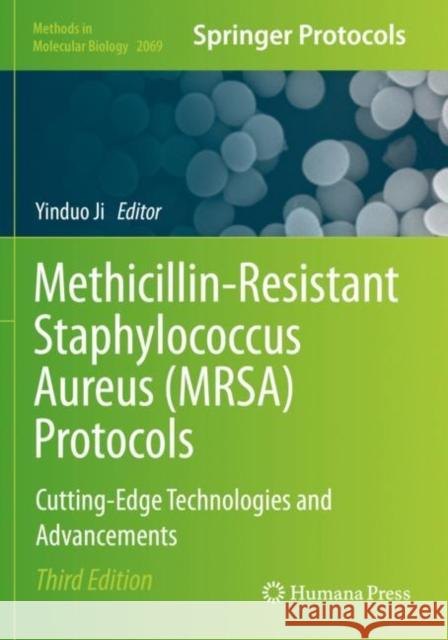Methicillin-Resistant Staphylococcus Aureus (Mrsa) Protocols: Cutting-Edge Technologies and Advancements » książka
topmenu
Methicillin-Resistant Staphylococcus Aureus (Mrsa) Protocols: Cutting-Edge Technologies and Advancements
ISBN-13: 9781493998517 / Angielski / Miękka / 2020 / 268 str.
Methicillin-Resistant Staphylococcus Aureus (Mrsa) Protocols: Cutting-Edge Technologies and Advancements
ISBN-13: 9781493998517 / Angielski / Miękka / 2020 / 268 str.
cena 623,94
(netto: 594,23 VAT: 5%)
Najniższa cena z 30 dni: 597,58
(netto: 594,23 VAT: 5%)
Najniższa cena z 30 dni: 597,58
Termin realizacji zamówienia:
ok. 16-18 dni roboczych.
ok. 16-18 dni roboczych.
Darmowa dostawa!
This third edition volume expands on the previous editions with an update on the latest techniques used for the detection, genotyping, and investigating pathogenesis of Staphylococcus aureus in vitro and in vivo. The methods covered in this book mostly focus on routine clinical diagnosis, surveillance, research, and practice for treatment of patients infected by multi-drug resistant S. aureus. The book also covers the epidemiology of MRSA, molecular typing approaches, clinical treatment of MRSA infections, and animal models of drug discovery. Written in the highly successful Methods in Molecular Biology series format, chapters include introductions to their respective topics, lists of the necessary materials and reagents, step-by-step, readily reproducible laboratory protocols, and tips on troubleshooting and avoiding known pitfalls.
Informative and cutting-edge, Methicillin-Resistant Staphylococcus Aureus (MRSA) Protocols: Cutting-Edge Technologies and Advancements, Third Edition is a valuable resource for researchers looking to set up new methods to study S. aureus, and will also be very useful for technicians and scientists working on other bacterial pathogens.











